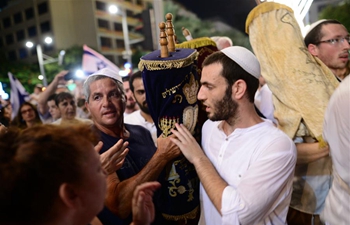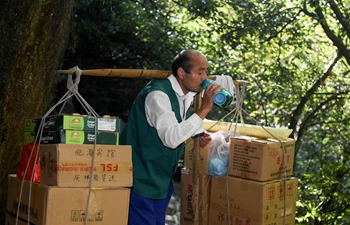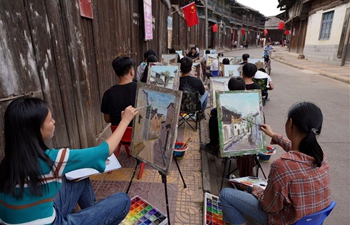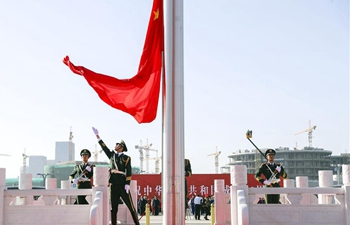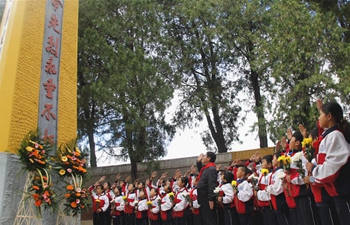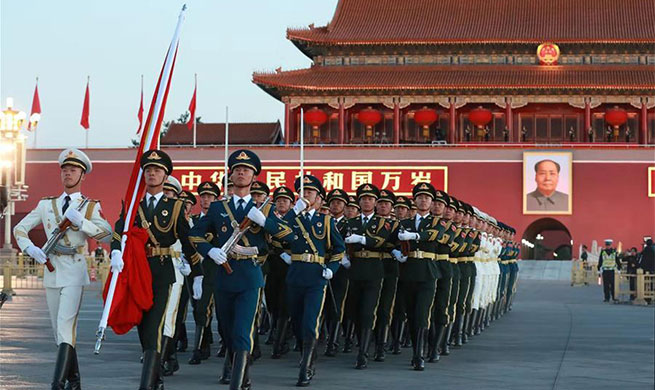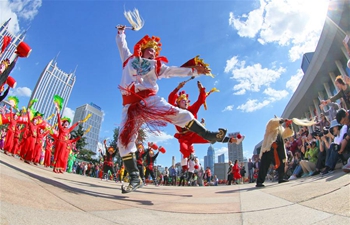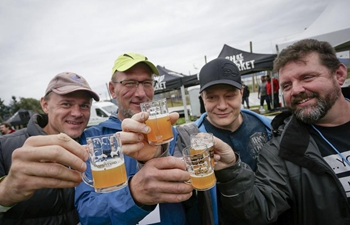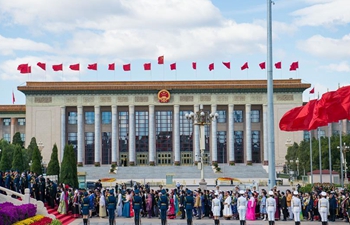RIO DE JANEIRO, Oct. 1 (Xinhua) -- A judge in Brazil has released previously held-back testimony by a former finance minister who accused former President Luiz Inacio Lula da Silva of taking bribes.
In the testimony, Antonio Palocci, who once served as finance minister in Lula's administration for three years and as chief of staff for the first six months of Dilma Rousseff's government, made several accusations.
According to Palocci, the presidential campaigns to re-elect Lula in 2006 and to elect Rousseff in 2010 cost 1.4 billion reals (348 million U.S. dollars), an amount much higher than it was declared to the Electoral Court. Palocci also said Lula used the pre-salt oil exploration at Petrobras to get campaign money.
In addition, Palocci stated that over 900 out of the 1000 decrees in four governments of the Workers' Party involved bribes.
Palocci who has been in jail since 2016 testified in exchange for a leniency deal in which he agreed to pay a fine of 37.5 million reals (9.03 million U.S. dollars) and may have his jail sentence reduced.
Both the offices of Lula and Rousseff responded to the allegations. Lula's defense team said that Palocci's testimony is not corroborated by any actual evidence.
The defense team also pointed that Palocci's testimony was rejected by the prosecution's office due to its inconsistency and stated that judge Sergio Moro, who released the testimony, admits that it cannot be taken into consideration in a criminal process.
In addition, Lula's defense stated that Moro's decision to disclose the testimony now, just a few days before the general election, "has the clear objective of trying to cause political damage to Lula and his allies."
Lula, who is serving a jail sentence, has been barred from running for president again, but his replacement, Fernando Haddad, is rising quickly in recent polls.
Former President Rousseff released a statement calling Palocci's testimony slander, demanding he reveal where all the supposed extra money from the campaign is. She also said the decision to release the testimony a week before the election has political objectives.
The first round of voting in the Brazilian presidential election is set for Oct. 7.




